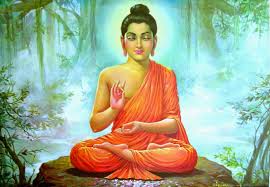
Jainism, also known as Jain dharma, is a nonviolent ancient Indian religion that emerged in India in the sixth century BC. Jainism is thought to have been founded by Mahavira (599-527BC). The principle of nonviolence, which extends from thoughts, speech, and actions in everyday life, is the most well-known aspect of Jainism. Dairy products obtained through inhumane treatment of animals are not to be included in the diet because Jainism includes animals. All living things are included in this nonviolent belief, and some vegetables are not eaten if they are considered living beings (able to sprout). Jainism has ten life principles and incorporates reincarnation and karma, but it does not believe in a creator God.
According to Jainism, all life has a soul, from bacteria to plants, animals, and humans. Because they all have souls, they can all achieve nirvana.
Jains do not worship a god or a saint, but rather strive for nirvana, which they believe other liberated souls have attained.
According to Jainism, karma is actually matter that attaches to the soul as a result of thoughts, actions, and words, whether positive or negative.
The belief in multiple universes is prevalent in Jainism. This is Bharat Kshetra, one of three universes into which we could be reborn.
The swastika has a different meaning in Jainism than what most people associate it with (Nazis). Each of the four sections represents one of the four states of being (hellish beings, plants/animals, heavenly beings, and humans). Humans can experience these transient states of being from birth to death.
Because of their nonviolent beliefs, Jains are vegetarians. They may also become vegan in order to avoid the harm and devastation caused by modern farming.
The majority of Jains do not consume mushrooms, honey, or root vegetables. They also do not consume alcohol or use mind-altering drugs.
Fasting is widely practiced in Jainism.
Some extreme Jains fast until they die. These Jains would rather die than cause any harm to the plants they would otherwise have to consume in order to survive.
Jains are the most educated religious group in India.
In America, Jains are among the wealthiest people in the country.
Jains take five abstinence vows: Ahimsa (nonviolence), Satya (truthfulness), Asteya (no stealing), Aparigraha (non-attachment), and Brahmacarya (non-attachment) (chaste living).
Sensory knowledge, scriptural knowledge, clairvoyance, telepathy, and omniscience are the five types of knowledge in Jainism.
According to Jainism, there are six basic substances: soul, matter, time, space, adharma, and dharma.
The soul substance is referred to as Jiva in Jainism. The other five substances are known as ajiva.
Jains celebrate their most important festival, Paryushana, or Daslakshana, in August or September. During this 8-10 day festival, Jains frequently fast, meditate, and emphasize the five main abstinence vows.
The majority of Jains live in India, where their population is estimated to be between 4-6 million people. There are Jain communities in Europe, the United States, Kenya, and Canada.










Hi there! I just wanted to reach out and say how much I’ve been enjoying your blog lately. Your writing is so well-written and informative, and I always learn something new when I read your posts. Thank you for sharing your insights with us!